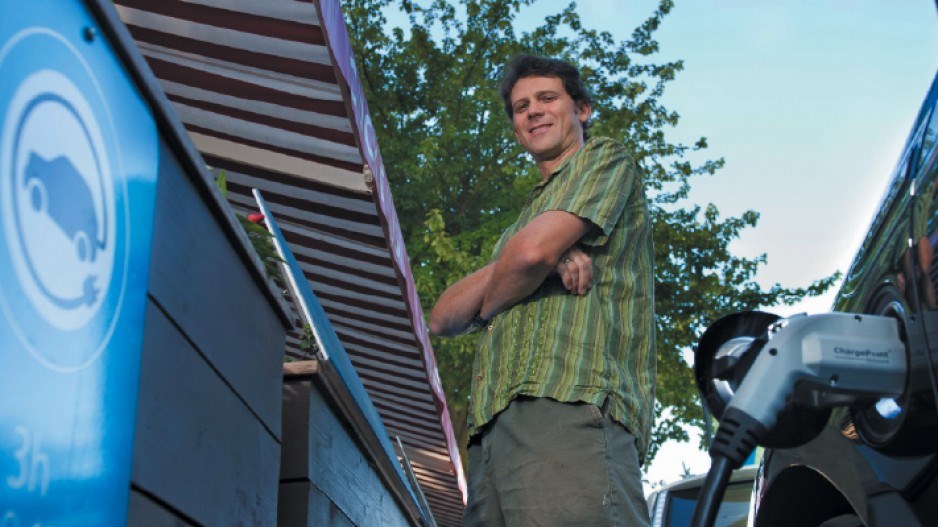BC electricians are betting on an electric vehicle boom in the province, and they’re launching a charging station training course to get ahead of the perceived demand.
The Electric Vehicle Infrastructure Training Program (EVITP) – a joint initiative between the Electrical Contractors Association of BC and the International Brotherhood of Electrical Workers Local 213 – is a new 24-hour program beginning early next year that teaches journeyman electricians and college students how to install charging infrastructure in homes and public spaces. The course will also detail the history of electric vehicles.
The Electrical Joint Training Committee, an umbrella organization of union directors and electrical contractors, developed the EVITP curriculum. Its director, Andy Cleven, said B.C.’s support of the electric vehicle industry was behind the committee’s decision to introduce the program in the province. For example, the government announced in January it would spend $1.3 million to install 13 fast-charging stations on Vancouver Island, in the Interior and the Lower Mainland. There is also a $500 provincial rebate for home-based charging stations and a $5,000 rebate on the purchase of an electric car as part of the Clean Energy Vehicle for British Columbia fund.
And until last May, there was an additional $2,000 rebate from the Community Charging Infrastructure Fund available to businesses that installed charging stations on their premises.
“This shows a commitment toward cleaner transportation means. We see the growth of electric vehicles as a major change,” said Cleven.
“We want to be on the leading edge of this technology. This is an opportunity to meet the needs of the future.”
But the race to install charging stations and train electricians does not mirror the popularity of electric vehicles with the public, said Gordon Price, director of Simon Fraser University’s City Program.
In 2012, there were 620 electric vehicles sold across Canada. In B.C., fewer than 200 electric vehicles were on the road last year, yet there are more than 450 charging stations installed in the province.
In Vancouver, numerous businesses offer charging stations. They include the Fairmont Hotel Vancouver and the Fairmont Waterfront Hotel, Edible Canada restaurant on Granville Island and Home Depot on Seventh Avenue.
Price said the cost of a new electric vehicle is still prohibitive for most people.
A new base model Nissan Leaf is nearly $32,000 – $5,000 more than its internal combustion counterpart.
National sales of electric vehicles have jumped this year – 689 had been sold as of May, according to data from automotive marketing firm R.L. Polk Canada – but Price believes any significant commercial advances in electric vehicles will come from fleet sales, not individual purchases.
“Hybrid technologies, for instance, took off with taxis,” said Price. “This technology, too, can be done as part of fleet management. I think its chances right now are in that fleet function.”
Jean-Michel Toriel, president of Big Green Island Transportation, an electric car consultancy that works with companies interested in incorporating electric cars into its fleets, agreed.
Toriel said car manufacturers, improving 2013 sales notwithstanding, have had limited success with individual consumers but commercial fleets could provide “the momentum needed to drive electrical vehicles forward.”
“There has been a slow integration of electric vehicles at the residential level,” he said. “We see the fleet component being very important.”
For a detailed map listing all of the charging stations in Vancouver and the North Shore, visit plugshare.com.




